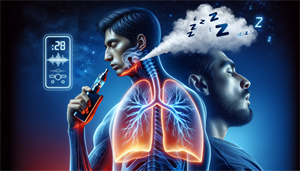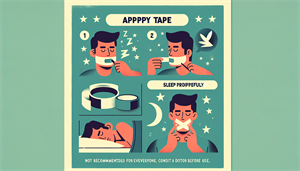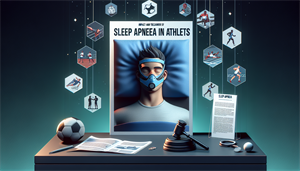
Does Vaping Cause Snoring?
Vaping has become a popular alternative to smoking cigarettes, with millions of people worldwide believing it to be a safer option. However, recent studies have started to unveil the truth about the potential health risks associated with vaping, including its connection to snoring and sleep apnea. Are you aware of the impact vaping can have on your sleep and overall health, and does vaping cause snoring?
Key Takeaways
-
People who vape tend to snore more often and louder than those who don’t smoke or have quit smoking.
-
Understanding vaping and its effects is essential to identify potential health risks.
-
Nicotine can have a detrimental effect on sleep quality, intensifying snoring and other symptoms of sleep apnea.
Understanding Vaping and Its Effects
Vaping involves inhaling aerosol from e-cigarettes containing nicotine, chemicals, and flavorings as an alternative to smoking cigarettes. Nicotine is both highly addictive and toxic. It is found in both cigarettes and e-cigarettes.
Given that about 31 million Americans continue to smoke cigarettes, cigars, or vape, it’s vital to comprehend the potential health risks that vaping poses.
Vaping can impede restful sleep, increase snoring, and has both inflammatory and stimulant effects, making it a detrimental habit similar to smoking cigarettes.
The Rise of E-Cigarettes
The history of e-cigarettes dates back to the early 2000s, when a Chinese pharmacist named Hon Lik developed the first device in 2003 as a potential method to help people quit smoking.
Although e-cigarettes do not contain tobacco, they still contain harmful substances such as nicotine, chemicals, and flavorings. As a result, quitting smoking through vaping remains a controversial method.
Medical professionals are now observing the effects of vaping on lung health, blood pressure, and sleep. Furthermore, research on the efficacy of vaping as a smoking cessation method is limited, and it is not currently recommended by the FDA or the CDC, as nicotine withdrawal symptoms can still occur when using e-cigarettes.
Nicotine's Impact on Sleep and Snoring
Nicotine negatively influences sleep quality, hindering those who vape from getting a sound night’s rest. As a stimulant, nicotine increases the release of neurotransmitters, influencing the functioning of the nervous system and causing sleep disturbances such as prolonged sleep onset latency. This makes it difficult to fall asleep and can potentially make sleep apnea worse.
Moreover, studies suggest that nicotine can lead to inflammation in the airways, thereby intensifying snoring and other symptoms of sleep apnea.
Vaping and Its Connection to Snoring
Vaping and its connection to snoring stem from the presence of nicotine and other chemicals that cause inflammation and irritation in the airways. Research has indicated that vaping may lead to increased upper airway inflammation and disruption of circadian rhythm, which can exacerbate snoring and other sleep apnea symptoms. Consequently, people who smoke or vape tend to snore more often and louder than their counterparts who don’t smoke or have quit smoking. Additionally, exposure to passive cigarette smoke also increases the probability of snoring.
Vaping's Influence on Sleep Apnea
Vaping can aggravate sleep apnea symptoms by inducing inflammation and disrupting breathing while asleep. Obstructive Sleep Apnea (OSA) is a medical condition that results in disturbances to peaceful and restorative sleep, and treating sleep apnea can be more challenging for those who smoke or vape. By causing inflammation of the upper airway and disturbance of the circadian rhythm, vaping can amplify the severity of snoring and other OSA symptoms, thereby worsening the condition.


